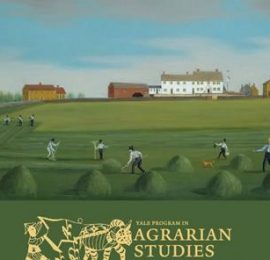
| Project number | 585603-EPP-1-2017-1-DE-EPPKA2-CBHE-JP
|
| Duration
|
36 months (2017-2020)
|
| Grant
|
977.963 €
|
| Applicant (Coordinator)
|
Dr. Ralf Schlauderer – ralf.schlauderer@hswt.de HOCHSCHULE WEIHENSTEPHAN-TRIESDORF – Germany |
| Local Coordinators
|
Armenian National Agrarian University (ANAU): Mr. Garegin Hambardzumyan – garegin77@gmail.com
Yerevan State University (YSU): Mr. Gegham Gevorgyan – rector@ysu.am
|
| EU partners
|
Universitatea De Stiinte Agricole Si Medicina Veterinara Ion Ionescu De La Brad Din Iasi – Romania
Uniwersytet Przyrodniczy We Wroclawiu – Poland Writtle University College – UK
|
| Partner countries
|
Armenia
Armenian National Agrarian University (ANAU) Yerevan State University (YSU) Ukraine National University of Life and Environmental Sciences of Ukraine Sumy National Agrarian University Uzbekistan Andijon Qishloq Hujaligi Instituti Samarkand Agricultural Institute
|
| Project Summary
Armenia, Ukraine and Uzbekistan have shared a common historical background. Since their independence in the 90s, agriculture has undergone a period of transformation. The social, economic and political changes have had an impact on the entire higher education system. TOPAS aims at filling the gap within a common former soviet inherited agricultural sciences higher education system in these countries and practical training in real working environment to provide a better match between job market needs and the qualifications offered. The vocationally oriented practical programs should be introduced and improved based on learning outcomes and competencies approach with flexible learning pathways and permeability among the different agrarian management programs. Within the program partnership between universities and stakeholders (farm industry and associations) will be fostered. A wide-range of activities will facilitate the transition from teacher centered knowledge-based form of education to student-centered practice based education in Agrarian studies and hence employability by enhancing the cooperation between universities and agriculture enterprises through adequate internship schemes with government support to recognize formal and informal learning and endorse ECQIP. Another innovative aspect of the project is the creation of a databank for applied sciences on the field of agriculture management for teaching purposes in the field of data collection of students, teachers and researchers. This databank will consist of data on production inputs, costs and outputs of major cash crops of these countries and will offer valid data for agricultural management study courses. The experience of the last decade showed, that missing practical orientation and knowledge of BA and MA students is one of the most important obstacles for professional qualification. While curricula development was well adapted in many fields, the cooperation with farms and industry has to be built up. Website: |
|
